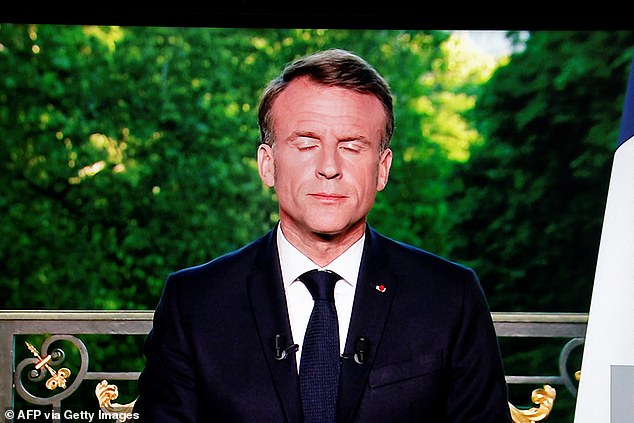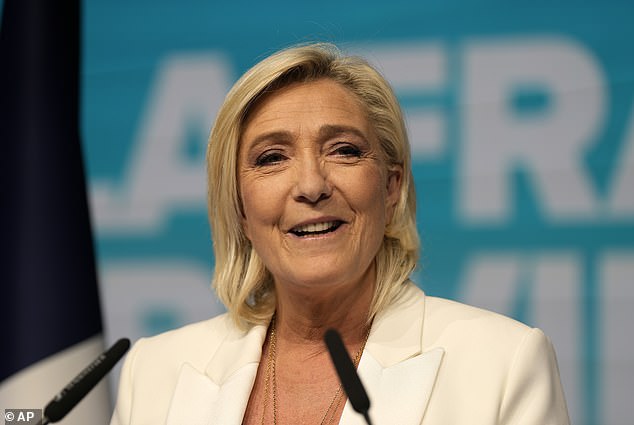Table of Contents
Far-right political heavyweight Marine Le Pen said Sunday night that her party is “ready to take power” after Emmanuel Macron called early elections following a major defeat in the European elections.
Macron dissolved the French parliament and announced the vote in the wake of a massive shift to the right during the country’s European Union elections.
The president suffered a humiliating defeat after Le Pen’s National Rally party won a projected 31.5% of the vote.
So why did Macron decide to call elections? When will it be held and how does it affect the political landscape in France?
Continue reading below for everything you need to know about the upcoming parliamentary elections in France.
Far-right politician Marine Le Pen said Sunday night that her party is “ready to take power” after Emmanuel Macron called early elections.

By seeking to weaken the far right, Macron is betting on his own vulnerable party to avoid huge losses that could derail his final years in government.
Why has Macron called elections?
While the news that Macron has called an election may surprise many, there is one key point we must remember: the next vote will be for a parliamentary election in France and not a presidential one.
According to constitutional rules, presidents in France cannot be elected for more than two five-year terms.
Macron will have already met these requirements having first been elected by voters in 2017 before being re-elected in 2022, ruling him out of contention for the 2027 presidential race.
Following his announcement, Macron stated: ‘France needs a clear majority in serenity and harmony. To be French, deep down, is about choosing to write history, not getting carried away by it.’
Yet by seeking to weaken the far right, Macron is betting on his own vulnerable party to avoid huge losses that could derail his final years in government while giving Le Pen even more power.
He is also not very popular with the French public, having only survived a vote of no confidence against his government by just nine votes in March 2023.
However, analysts’ predictions offer hope for the embattled president, as they have predicted that although Le Pen’s party could win more deputies, it is unlikely to win enough seats to secure a majority, meaning that the next French parliament could be even more disjointed. than the already fractured one that currently exists.
When are the French parliamentary elections?
Under Article 12 of the French Constitution, presidents can dissolve the National Assembly to resolve political crises, such as permanent and irreconcilable differences between parliament and the executive.
Voters must be called to the polls within 20 to 40 days after the assembly is dissolved.
Subsequently, the first round of the upcoming parliamentary elections in France was scheduled for June 30, followed by the second round on July 7.
Will there be early presidential elections?

Jordan Bardella, president of the French far-right National Rally, is seen at the party’s headquarters on election night after French President Emanuel Macron announced his decision to dissolve the National Assembly.
Although this is not the first time that a French president decides to dissolve parliament, as happened in 1962, 1968, 1981 and 1988, his choice has not always been justified.
In 1997, then-president Jacques Chirac called early legislative elections only to see the left gain a majority that effectively left the country in limbo for the next five years.
Since Chirac’s appeal failed spectacularly, no president has decided to dissolve parliament since.
This is due, in part, to the fact that the presidential and parliamentary terms were synchronized in 2000, giving voters the opportunity to allow each president a parliamentary majority, until Macron’s re-election in 2022.
Although early presidential elections are unlikely, nothing can be ruled out given the crushing nature of Macron’s defeat in the European elections and his subsequent decision to call parliamentary elections.

